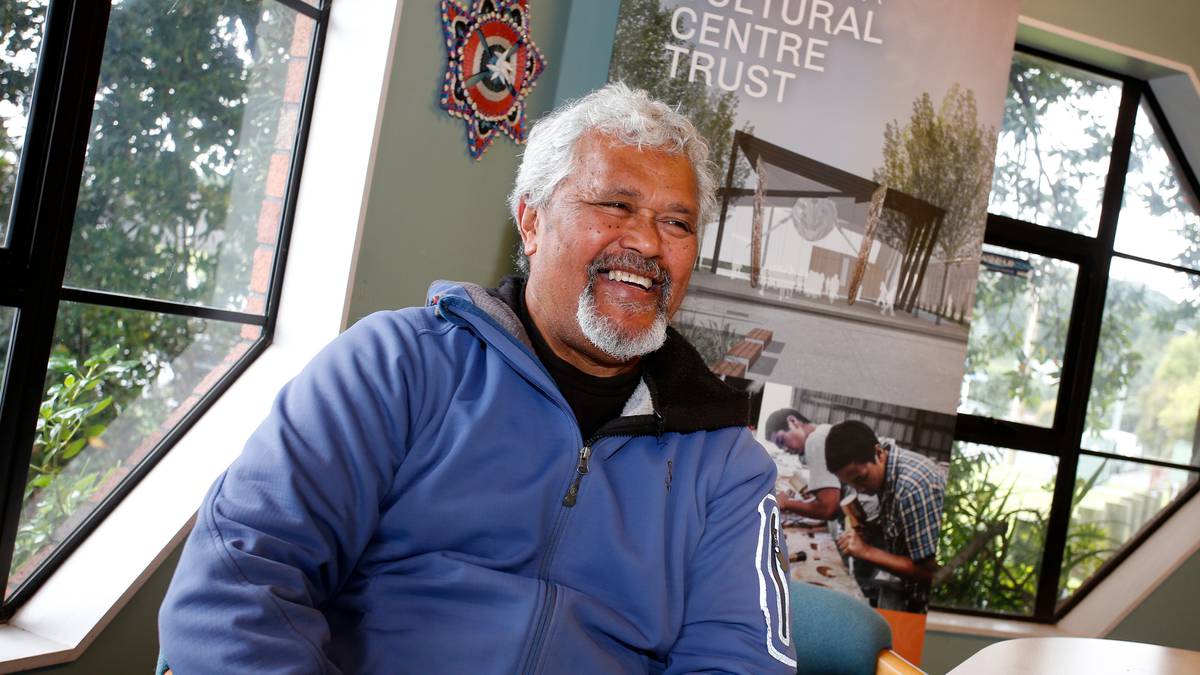Whangārei Tohunga Whakairo Te Warihi Hetaraka thinks more families are embracing mātauranga Māori and indigenous parenting approaches. Photo / Michael Cunningham.
By Jaime Lyth
Māori and Pasifika dads are leading the way in childcare, new research has shown.
While Kiwi fathers are less involved in the day-to-day care of children compared to mothers, Māori and Pasifika
dads are more hands-on than their Pākehā counterparts.
The findings are laid out in the report, ‘Fathers’ household and childcare involvement in New Zealand: A snapshot, determinants and consequences.’
Lisa Meehan, co-author of the report and associate director at the Auckland University of Technology (AUT) NZ Work Research Institute, said the research found clear ethnic differences in fathers’ involvement.
In general, Māori and Pasifika fathers undertake childcare activities more than Pākehā fathers, and Pasifika fathers were more likely to undertake “high-quality” care activities, she said.
“Pacific fathers were more likely to undertake enriching activities like reading and playing games with the child.”
Meehan said one of the interesting points raised in the research was that more fathers than mothers thought the distribution of childcare responsibilities was fair.
The research noted its analysis was hampered by a small sample size for Māori and Pasifika people, so the findings may not represent the New Zealand families overall.
Northland youth worker and Pasifika community leader Paula Tabakinabou said parental roles in Pasifika culture left room for dads to be nurturers, too.
He said while many Pacific Islander dads are looked at as physically dominant, they are actually “just big softies”.
/cloudfront-ap-southeast-2.images.arcpublishing.com/nzme/HAHZVQQUGEOQJASJ2SOEEWEKEY.jpg)
Tabakinabou said Pasifika parents living in New Zealand often raise their children with values from both their own upbringings and the country they have emigrated to.
“We’ve learned that […] there are some things we need to embrace. Then [with regard to] other things, maybe it’s better we stick to what’s best for us.”
For Tabakinabou, working with imprisoned youth for more than a decade has shown him young people can have identity struggles if separated from their generational cultural values.
“We believe a lot in that it takes a village to raise a child, so we build that community and embrace it so they don’t feel like they become a minority.”
Tohunga Whakairo [master carver] Te Warihi Hetaraka has seen that the younger generation of Māori parents are keen to learn about how they used to care for children pre-colonisation.
“I believe that the way that we lived in regards to the worldview of raising kids, because we’ve done it for centuries, is locked in the DNA somehow.”
Traditionally, mothers and fathers in Māori families raised their children in a “non-gendered way”, he said.
Hetaraka said early reports by Pākehā observers existed in which Māori were accused of spoiling their kids.
The importance of a father’s role was highlighted in the research, which found a positive relationship between a father’s involvement and a child’s outcomes.
Outcomes included the development of language and motor skills, as well as psychological outcomes such as fewer behavioural issues.
Hetaraka described a cultural shift taking place in New Zealand.
“I walk the loop and I see fathers running around with the baby in the pram,” he said.
“Everybody seems to be suddenly coming on board in having an active part in raising the kids, rather than leaving it to the female.”
The Children’s Commissioner says Māori and Pasifika families bear a greater burden from poverty and hardship than Pākehā.
Meehan said the research accounted for those types of factors.
“[…] We still found that Māori and Pacific fathers were more involved.”
Other findings within the research included that fathers with helpful families were more likely to be involved, Meehan said.
“This signals that perhaps there may be some important things going on with the helpfulness of the extended family as well.”
Communal and extended family approaches are more commonplace among non-European families in New Zealand – including Māori, Pasifika and Asian communities.




